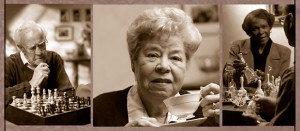As the incidence of cognitive impairment increases with advancing age, a larger number of our elderly population will suffer some variety of dementing disorder. Causes include Alzheimer’s disease, multi-infarct dementia, and a variety of other disease states. Effects can vary to very subtle to severe. At some point, cognitive impairment may limit an elder adult’s ability to make decisions. These limits may be in specific domains, such as financial or medical.
 Alternatively, cognitive limitations may be more global in nature. Some elder adults had the foresight to record specific beliefs prior to any cognitive disease. Health care proxies, living wills, or financial power of attorney document an individual’s choices at an earlier time point.
Alternatively, cognitive limitations may be more global in nature. Some elder adults had the foresight to record specific beliefs prior to any cognitive disease. Health care proxies, living wills, or financial power of attorney document an individual’s choices at an earlier time point.
But many adults do not put their wishes in writing. Also, adults are free to change their opinion at any point. The question must then be asked: at what point does cognitive impairment limit a person’s capacity to make decisions? There is not one simple answer. The level of scrutiny varies with the task. For example, making changes to a will generally only requires a low level understanding of one’s estate and heirs. Other tasks, such as consenting to a complicated medical treatment, will require far more understanding. Thus, the level of scrutiny is much higher. But where should society draw the line between protection and paternalism?
These and other issues were addressed by a panel at this year’s Annual Meeting of the American Academy of Psychiatry and the Law (AAPL), which took place in San Diego, California on October 24-27, 2013. The panel, entitled “Impaired Medical Decision-Making in Older Patients,” included a lively discussion between Stephen Read, M.D. of the Department of Psychiatry and Biobehavioral Sciences at UCLA; Debra Pinals, M.D., the Assistant Commissioner of Forensic Services for the Massachusetts Department of Mental Health; Phillip Resnick, M.D., the Director of the Forensic Psychiatry Fellowship at Case Western Reserve; Sherif Soloman, M.D., an Assistant Professor of Psychiatry at Case Western Reserve; and Robert Weinstock, M.D., the Director of the UCLA Forensic Psychiatry Fellowship Program.
Continue reading »



 Alternatively, cognitive limitations may be more global in nature. Some elder adults had the foresight to record specific beliefs prior to any cognitive disease. Health care proxies, living wills, or financial power of attorney document an individual’s choices at an earlier time point.
Alternatively, cognitive limitations may be more global in nature. Some elder adults had the foresight to record specific beliefs prior to any cognitive disease. Health care proxies, living wills, or financial power of attorney document an individual’s choices at an earlier time point.
